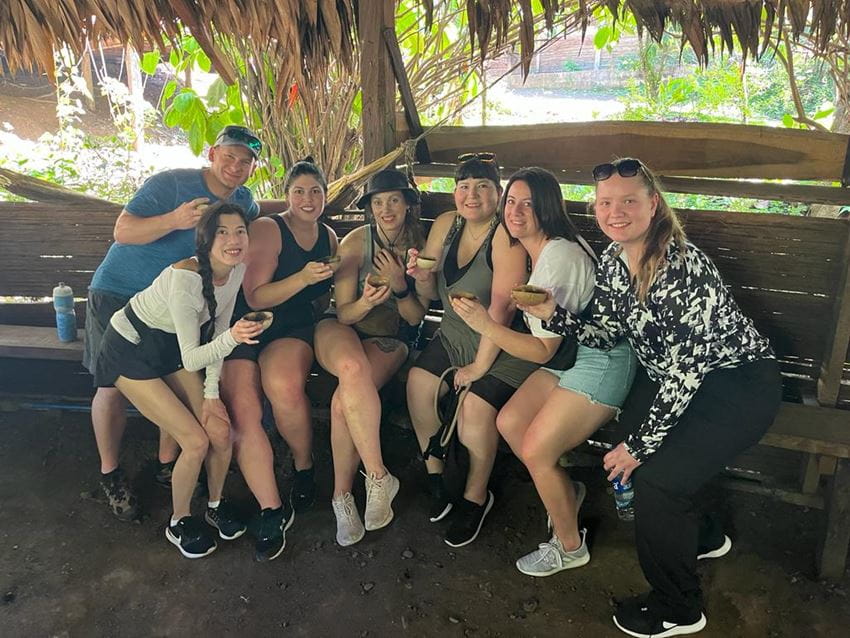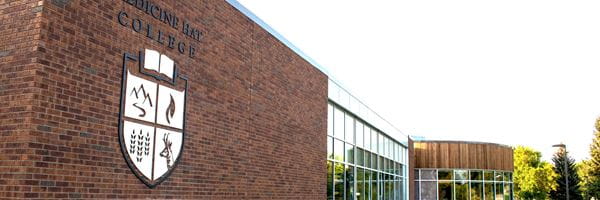MHC students connect with Indigenous culture in Costa Rica

Six Medicine Hat College (MHC) students from a variety of backgrounds packed their bags over reading week to find a new understanding of culture.
Thanks to the funding of Global Skills Opportunities, the Government of Alberta’s outbound student mobility pilot program, students from MHC and Southern Alberta Institute of Technology (SAIT), travelled to the rainforests of Costa Rica. The students were provided food, accommodation, and activities for the week through Global Learning Programs, providing an inside look into a culture previously unknown to them.
The students say they gained friendships, an unforgettable experience, and a new way to relate to Indigenous culture.
An eye-opening experience
The Bribri community is one that values sustainability, community, and the sharing of traditions. Living amongst the rainforests of Costa Rica, the students agree they were met with a new respect for Indigenous culture.
From the day they arrived the students’ eyes were opened to a sustainable way of life, completely different from their own. They awoke each day in shelters built by the Bribri and through activities provided, they observed how the tribe works together to grow their own food and medicines, each member playing a key role in the success of the community.
“The Bribri live simple lives. They live off the land, they live clean, and they don't have very much waste. It really opens your eyes to how privileged we are here in Canada,” says Chasity Cairns, manager of Indigenous engagement and student supports.
In addition to sustainability, they add the strength of the community was powerful takeaway. The students met several families who walk great distances to work, often bringing their children with them, explains fourth-year education student, Tanisha Preston.
“When I reflect on the experience, the biggest standout was the children. Hearing the story of their journey to get to the community each day opened my eyes. They were wearing sandals and their parents had to walk to get to the community we were staying in to work because they didn't have childcare at home.”
Since tourism is a major source of income for the Bribri, this way of life has become a necessity to sustain their community.
As a gesture of kindness, the students brought gifts to give to the children at the school they were visiting, which were graciously accepted by the community leaders to be distributed to the community members fairly.
The students also gained an appreciation for the Bribri peoples’ ability to sustain their culture by sharing their knowledge and traditions. Sharing their culture through tourism to creating their own educational curriculums for their future generations, the Bribri people are ensuring their culture remains intact for years to come.
Matthew Wass, a fourth-year education student, adds that there are standards they had to uphold to ensure they are furthering their Indigenous teachings. Despite being told to maintain a colonized curriculum, the Bribri have created their own curriculum, which prioritizes the values of the culture, sustainability, and community.
Bringing culture home
Since leaving the rainforests of Costa Rica and the Bribri community, the students have found new ways to connect and share the knowledge of the Indigenous peoples of Canada.
For the education students, they brought the knowledge into their classrooms. As part of their practicum, their schools joined together so the students could teach their classes about the similarities of the Indigenous cultures of the Bribri and of Canada, while also demonstrating what was unique to both cultures.
“As a non-Indigenous person, the experience has helped me feel more comfortable to help share and spread knowledge and help inform people about indigenous culture,” reflects Allison Jones.
For others on the trip, the ability to connect with another Indigenous culture has provided new meaning to their own.
First Nation kinesiology student, Theri Pepper, says that while there are differences in the Indigenous cultures due to the way they interact with the land, the similarities in cultures made her feel at home.
Interested in learning more about study abroad opportunities for MHC students? Email goabroad@mhc.ab.ca.

